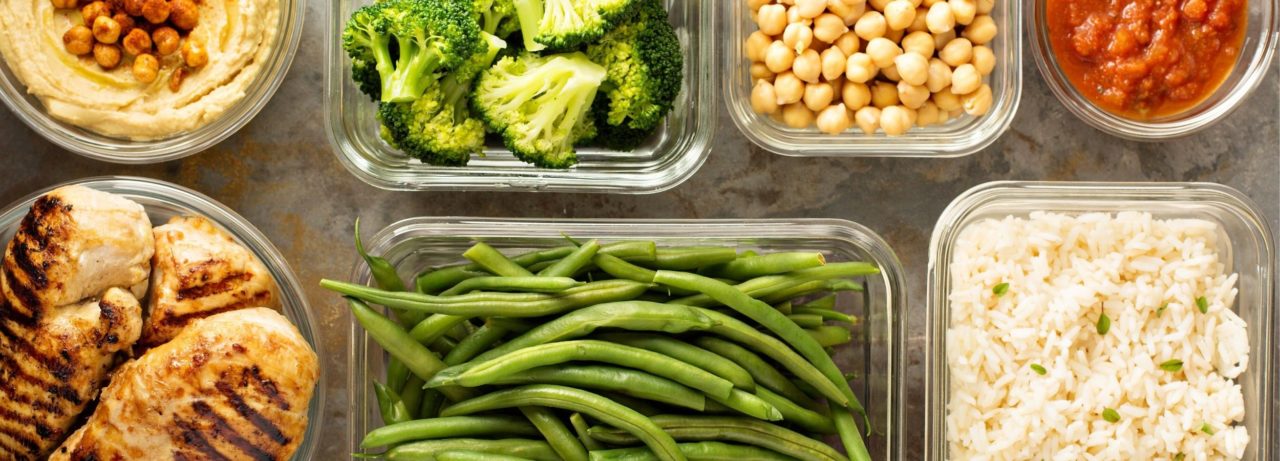Share
As you get older, it becomes even more important to eat healthy meals to ensure that your body gets the nutrients that it needs. However, that’s easier said than done for many aging adults, especially those who have disabilities, poor eyesight or dislike cooking. On top of that, many other factors affect the foods that they eat, including natural changes in taste and side effects from medications. To make sure that your aging loved one eats healthy, use these tips for making meal prep less challenging.
Get Helpful Cooking Gadgets and Utensils
When it comes to meal prep, some older adults struggle with cutting and chopping ingredients because of arthritis or some other disability. Ergonomic utensils, such as rocker knives, make this basic prep much easier. On the other hand, food processors are a great alternative. Also, aging adults can use slow cookers instead of stovetops and toaster ovens instead of traditional ovens.
Find Healthy and Diet-Specific Recipes
It’s very common for older adults to eat foods that aren’t healthy. In cases when their tastes change, they lean more toward sweet foods. If your loved one often chooses unhealthy meals, recommend more nutritious options with a lot of flavor. There are plenty of healthy recipes online for seniors. While you’re looking, keep your loved one’s dietary restrictions in mind. For instance, search for meals that are easy to chew if dental issues are a concern.
Prep the Ingredients Ahead of Time
Whether your loved one doesn’t like to cook or is busy, preparing the ingredients ahead of time makes cooking less time-consuming. You can assist with cutting and separating the ingredients for each meal of the week, and store them in the freezer. When it’s time to make meals, your loved one can pull out the necessary ingredients without doing prep work for hours.
Add Labels to Everything
It’s not unusual for aging adults to struggle with poor eyesight, which can make it difficult for them to find certain ingredients and read expiration dates. You can give your loved one an edge in the kitchen by putting clear labels with large print on everything. Include the name and expiration date of each product for reference.
Make Mealtime Something to Look Forward To
Sometimes, aging adults associate mealtime with loneliness. You can change that by planning special meals with your loved one. Consider having themed meals, inviting friends or family over, or trying exotic dishes. These small changes can make meal prep and mealtime something that your loved one looks forward to throughout the week.
Buy Frozen or Delivery in a Pinch
If you’re the primary caregiver for your aging loved one, you might not always have time to assist with meal prep. On the other hand, your loved one could have a busy schedule that makes meal prep and cooking too time-consuming. When there isn’t enough time in the day, having frozen meals to fall back on is helpful. Meal delivery is another option as long as the food meets your loved one’s dietary restrictions.
Consider Getting Professional Help
An alternative to frozen meals and delivery is in-home care. Through Caring Home Care, you can hire a nurse or companion to help your loved one with meal prep when you’re unable to. The caregiver registry can pair your family with someone who understands the importance of healthy meals and can even assist with shopping.
Choosing the right care option for a loved one can be a pivotal decision for many families. This blog delves into the advantages of in-home care versus nursing homes, providing essential insights to guide this important choice. Understanding In-Home Care: In-home care offers personalized, one-on-one assistance within the comfort of one’s own home. It’s tailored […]
Live-in care is a comprehensive form of assistance that offers round-the-clock support to individuals in their own homes. This blog explores the concept of live-in care, the benefits it provides, and how it stands apart from other home care services. Defining Live-In Care Services: Live-in care involves a caregiver staying in the home 24/7 to […]
Recovering from surgery can be a challenging journey, particularly when transitioning from hospital to home. This blog offers essential advice for a smooth transition, highlighting the supportive role of Caring Home Care’s unskilled care services tailored to the individual’s needs during this critical period. Understanding Post-Surgery Home Care Needs: Transitioning home after surgery involves understanding […]
Falls among the elderly can lead to significant health issues, including injuries and reduced mobility. Home care aides and Certified Nursing Assistants (CNAs) play a critical role in preventing falls and ensuring the safety of elder patients. Here are five key ways they can help: Assessment and Personalized Care Planning: Home care professionals are trained […]
Need A Caregiver? Fill Out Form Below
With our competitive rates, we make receiving in-home care affordable regardless of whether you’re using your insurance or paying out of pocket.






